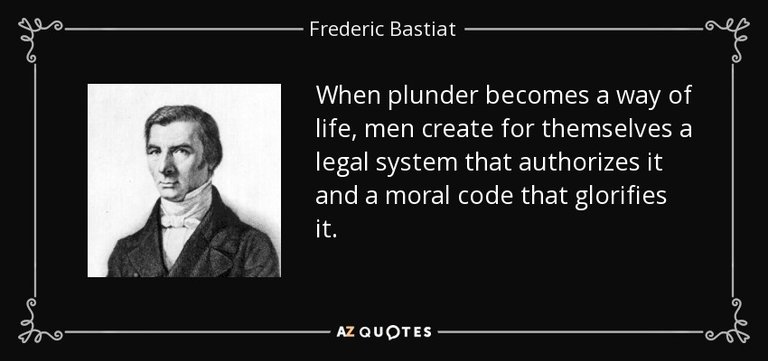Introduction
After reading Bastiat’s comments on Law and Government and The Petition, I have several thoughts I’d like to discuss. I really liked Bastiat’s writing style—I enjoyed his passive-aggressive tone and the way he questioned the government and law. I feel like I would’ve gotten along with him. Beyond that, I think he made some great points, many of which, unfortunately, still apply to the United States today, despite his work being written in 1849 to critique the French government. To organize my thoughts, I will break this discussion into four parts: analyzing The Government essay, The Law essay, The Petition, and finally, my thoughts on how these three works come together to convey a single message.
The Government
To say that I enjoyed reading Bastiat’s essay on government would be an understatement. I liked how he began by describing government as an ambiguous entity—both widely admired and frequently accused. This, to me, highlights the stark division in any country regarding opinions on government. He then spoke about government oppression, arguing that oppression should always be resisted, which I completely agree with. He pointed out that although the law is supposed to help the oppressed, it often becomes a tool that enables the oppressor. This is where things got “spicy.” He suggested that France should look to the United States as an example of a functioning government, claiming that “Americans expect nothing except from themselves and their own energy.” While I have to remind myself that this was written less than a century after the U.S. was founded—when its government was vastly different—I can’t help but feel disappointed that the U.S. did not live up to the praise it once received. He concluded the essay by calling government’s actions “dangerously childish,” which cracked me up. His choice of words perfectly captured the government’s “games” and “tantrums.”
The Law
Moving on to his second essay, The Law, I noticed a similar tone to the previous piece. Again, Bastiat made several compelling points. He began by stating that through some greater good (God, specifically), we were given the rights to life, liberty, and property. He then argued that laws exist to protect these rights. However, despite their intended purpose, laws often become guilty of the very evils they are supposed to prevent. He called out the United States—despite recognizing it as a superior country—for practicing slavery and imposing tariffs, both of which he saw as violations of liberty and property. He emphasized that all three fundamental rights—life, liberty, and property—must coexist and be freely exercised. He warned that slavery and tariffs could lead to future issues for the U.S., which, in hindsight, was an incredibly accurate prediction.
Bastiat also explored the concept of legal plunder, arguing that those in power make laws that benefit their own class while allowing them to live at the expense of others. This tied directly back to his points in The Government. He then made an intriguing statement: even if someone from a lower class rises to power and has the opportunity to amend unjust laws, they likely won’t because they won’t be “smart enough” to do so. This was a bold claim—it made me wonder where Bastiat saw himself in this equation. He clearly wasn’t in a position to make laws, but he was intelligent enough to recognize and critique their flaws. One final part of this essay that stood out to me was his assertion that no matter what the government does, the public will always perceive its actions as either legal or apparently legal. This reminded me of the kind of thing someone might sarcastically post on social media today—except Bastiat was writing in the 19th century.
The Petition
The final essay, The Petition (which had a longer name, but this title captures its essence), was much shorter than the previous two. In this piece, Bastiat sarcastically addressed manufacturers of light sources and related industries. His argument was that while governments push for domestic production, it would be absurd to compete with the sun, which provides free light for half the day. He mocked the government by proposing that laws should require people to close their windows and blinds during the day to force reliance on artificial light. He then exaggerated the supposed economic benefits of such a law, claiming that not only would the lighting industry thrive, but many agricultural sectors would prosper as well. Obviously, he wasn’t being serious, but his satire made a powerful point—governments cannot keep imposing tariffs and laws that force people to buy domestic products when foreign alternatives are clearly superior.
Conclusion
Overall, these were great reads. Bastiat had a brilliant way of critiquing government, law, and political corruption without stating it outright. His criticism of the government as an entity that cannot be fully trusted—despite the public's reliance on it—was both clear and valid. He also highlighted how laws often contradict their intended purpose, showing that simply having a law does not make it just or right. Ultimately, his writing remains just as thought-provoking today as it was in the 19th century.
